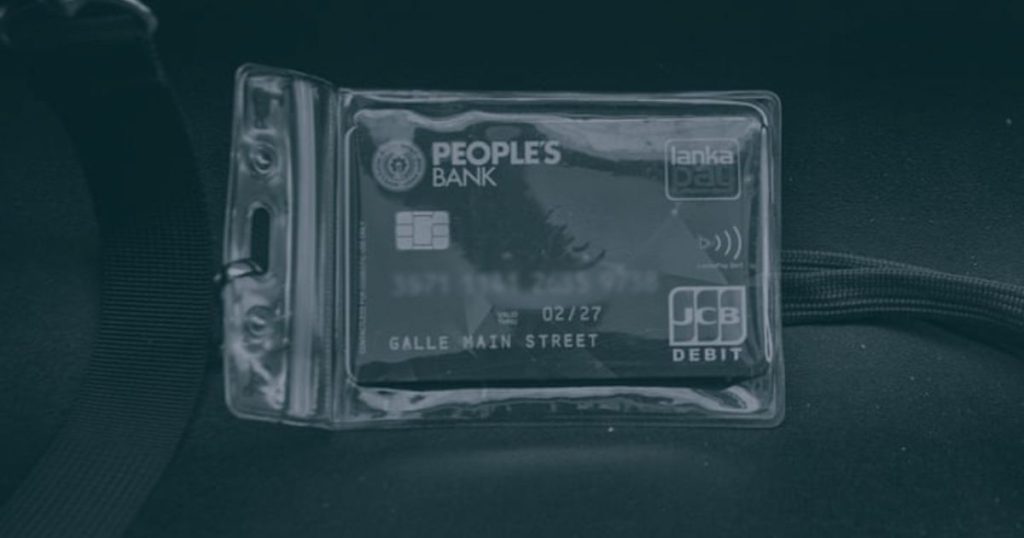The lack of infrastructure and investment in public transport has been one of the biggest drawbacks for Sri Lankans for many years. Even in a landscape where the country explores the feasibility of technologies like 5G, Sri Lanka’s public transportation system appears to lag decades behind. However, a recent announcement suggests that efforts may be underway to give the sector a much-needed modern touch.
CEO of LankaPay Channa de Silva recently stated that an open loop EMV (more on that later) transit card will be introduced for public transport soon. The announcement was made following a four-party agreement with the National Savings Bank (NSB), Sri Lanka Transport Board (SLTB), National Transport Commission (NTC), and LankaPay. Accordingly, the NSB as well as People’s Bank will come on board as the first banks that will support the new transit card system as de Silva remains “confident all card issuer financial institutions would come on board to support this national initiative.”

The project is currently in its first phase at the Southern Highway from the Makumbura Multimodal Center, with plans to expand to other areas including the railways. Further, de Silva mentions that a virtual transit card via smartphones option is on the way along with the physical card.
What this means for commuters
For those wondering, an open loop EMV transit system refers to when passengers have the ability to use bank-issued contactless debit/credit cards, mobile wallets, smart devices, and the like to pay for public commutes. The idea is that passengers will be able to pay for bus/train fares via different payment systems, be it a modern debit card or an NFC-enabled smartphone. At a minimum, this means commuters would potentially no longer need to scramble for exact change to pay the bus fare or wait in massively long queues at the train station for a ticket.
As of now, it’s unclear what the expected timeline of the project will be and when passengers can expect to use it beyond the Southern Highway. It’s also unclear how far the open loop EMV transit system will extend and if it will add in smart device payments via NFC capability. Though it’s likely that the initial system will operate via the EMV transit cards.
With regard to the transit card itself, the Ministry of Transport and Highways claims it will work as a prepaid where passengers could top-up/reload the card at CDMs (People’s Bank and NSB). The ministry has also stated that as part of the first phase, these cards will be issued by the two banks free of charge.
The future of public transport is mobile and contactless
Of course, the Ministry of Transport and Highways had already debuted a prepaid card system for public transport back in August 2022. The ministry hasn’t specified if this was part of the same project or a different test altogether, though the pilot phase of that project is eerily similar to what was recently announced.

Sri Lanka has been increasingly looking to move to updated payment systems across the board in the past few years. One of the more recent pushes has come in the form of LankaQR with the system being implemented in numerous storefronts, payment systems, expressway exit terminals, and others. Chances are, the QR payment capabilities could even be featured in the new transit card system as well. But the authorities have yet to comment on the matter.
Sri Lanka Railways also got an upgrade sometime back in March 2022 when it introduced an online reservation system for a select range of trains. Passengers can book tickets across all classes of reserved tickets online. Though the physical ticket would still need to be collected at the station, the department stated the system will be upgraded to issue e-tickets entirely.
Now, the prospect of an EMV transit card, a system that has existed in other markets for decades, finally making its way to Sri Lanka will be a welcome addition, to say the least. True, the real value addition for the transit card system will only come when its availability expands islandwide across both buses and trains. Regardless, the announcement is still a step in the right direction in what appears to be a slow movement toward modernizing the existing public transport system. It will be interesting to see how the project pans out in the long run.







GIPHY App Key not set. Please check settings